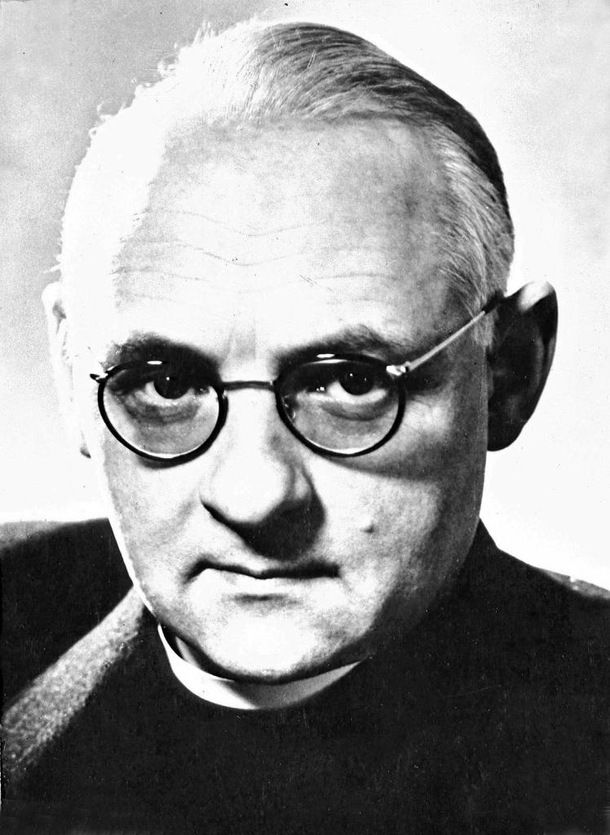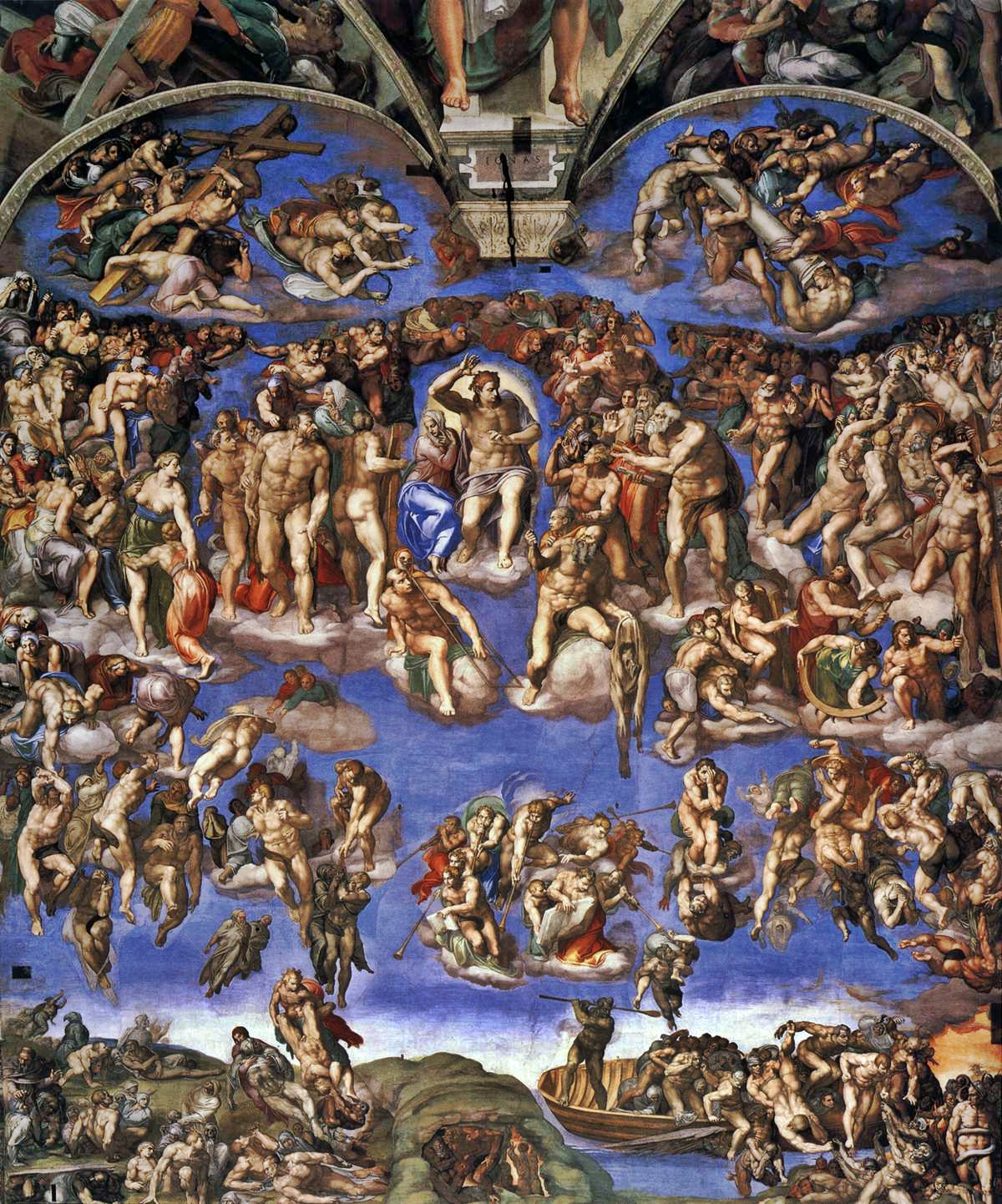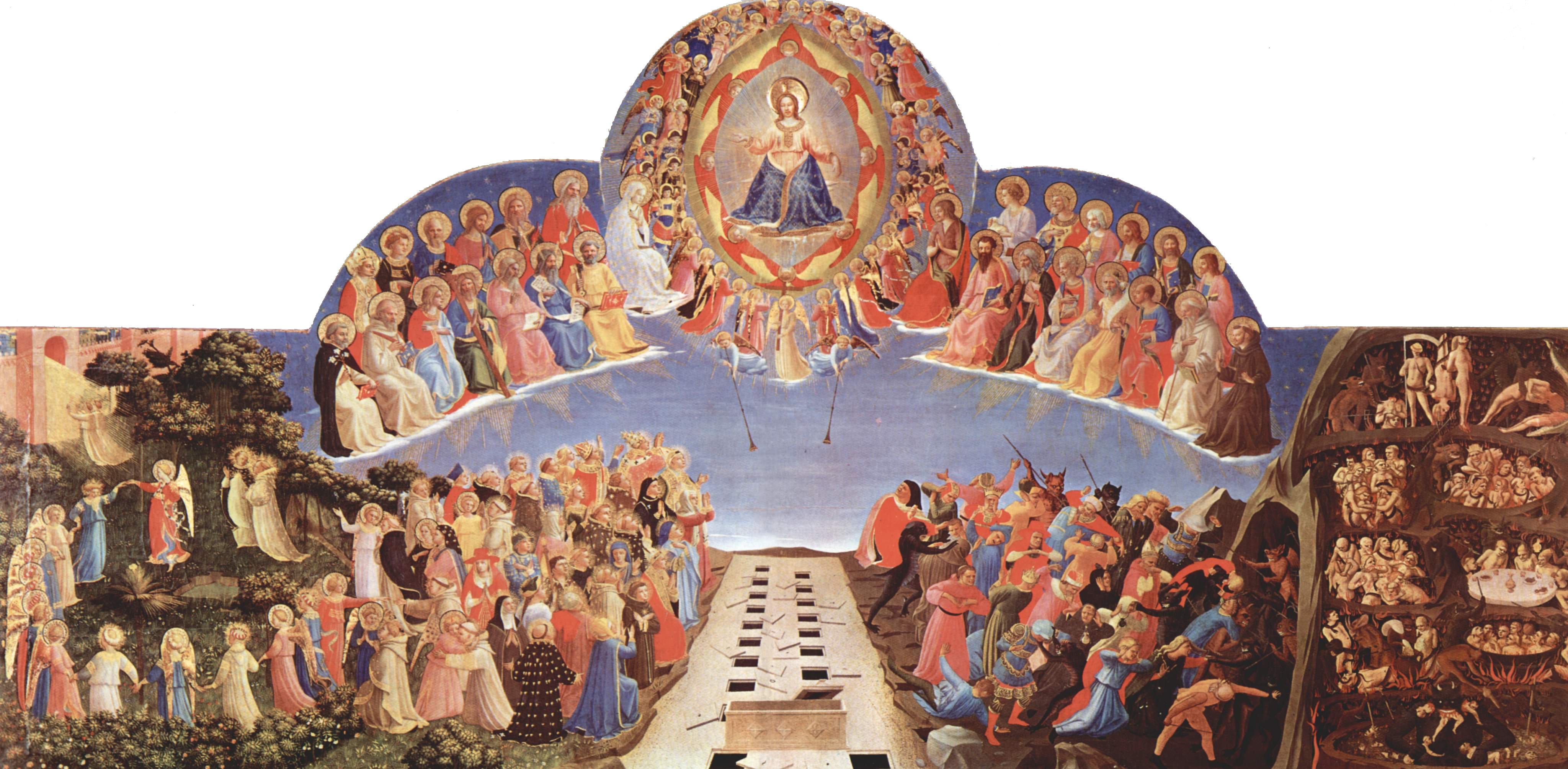Hans Urs Von Balthasar's short book, Dare We Hope: That All Men May Be Saved (With A Short Discourse On Hell), is an excellent introduction into the question Universal Salvation. Balthasar argues that Hell is a 'real possibility', however, there is good reason to hope that in the end, all people may be saved. The book is helpful to understand how to approach the Bible and the Church's teaching on these topics considering his conclusion. In his chapter in on the New Testament, Balthasar made a provocative, yet helpful statement on how to approach the teachings on Hell and Universalism in the New Testament:
"It is generally known that, in the New Testament, two series of statements run along side by side in such a way that a synthesis of both is neither permissible nor achievable: the first series speaks of being lost for all eternity; the second, of God’s will, and ability, to save all men. Before approaching particular texts, it is necessary to consider the fact that particular words of Jesus can be attributed with a high degree of probability to the pre-Easter Jesus, because in them he uses a language and images that were familiar to the Jews of that time (which does not mean, of course, that these texts, which have been preserved by the synoptic evangelists, are of lesser significance to us), whereas certain reflections by Paul and John clearly look back upon all that happened to Jesus—to his life, death on the Cross and Resurrection—and, in so doing, consider and formulate this totality from a post-Easter perspective.", - Hans Urs Von Balthasar, Dare We Hope, pg30
Balthasar provided and excellent visualization of these two parrallel statements in his comparison of Michelangelo's and Fra Angelico's depiction of the Last Judgment in art:
"Blondel rejects Dante's inscription on the door to hell: "To claim that this dungeon with its punishments is 'the work of primal and highest love' is to attribute to God a responsibility that the only the unrepentant have to bear"; he rejects in disgust the condemning gesture of Michelangelo's Christ and refers us instead to Fra Angelico, who depicts Christ, at judgment, as only displaying his wounds: "And at the sight of this, the unrepentant sinners turn away, beating their breasts to indicate that they hold themselves to blame." - Hans Urs Von Balthasar, Dare We Hope, pg115.
Balthasar also demonstrates some of the philosophical problems with the existence of Hell.
"This idea met with approval and frequent emulation. Such was the case, above all, with Saint Ambrose: “What is the outer darkness? Does a prison exist there, minelike excavations in which the offender is locked away? No; but rather, those who persist in remaining outside of God’s promise and order are in the outer darkness. Consequently, there is no actual gnashing of teeth or a fire that is eternally fed by physical flames; there is no bodily worm.” Then follows the comparison with the indigestible foods that cause fever in the body and the application of this to the sins of the soul, “which, so to speak, allows its constantly new sins to ferment along with the old, burned by its own fire and consumed by its own worm”. Jerome always speaks only of a spiritual fire, since the spiritual soul cannot be touched at all by a material fire. From all this it is clear, for one thing, that we cannot say that God has “created hell”; no one but man can be blamed for its existence. But then, too, that the idea of a self-condemnation of man—which, for G. Hermes, is nonsensical (“Who, then, will condemn himself, precisely if he is evil?”)—is most convincing where the hardened unlovingness of man runs up against the word of God’s absolute love. Why “will all tribes of the earth wail at the sight of him whom they have pierced” (Rev 1:7)?" - Hans Urs Von Balthasar, Dare We Hope, pg51-52
The book ends with a Short Discourse on Hell, which is a part two to the book, where questions and condenmantions! are addressed. One of which is on the question of "Joy over Damnation" and whether heaven and hell will look upon each other over a chasm like the Parable of the Rich Man and Lazarus:
"That the Parable of the Rich Glutton and the Poor Lazarus is not meant as anything more than an earnest warning to the living to have mercy on the beggar at their door is clear. Even if it is described in such drastic terms how the one tormented in the flames of Hades pleads for a drop of water from the fingertips of Lazarus, who is in the “bosom of Abraham”, the allegory should not evoke questions about the mental state experienced by Abraham and Lazarus at the sight of the tormented man: do they feel compassion, indifference, or. . .? In the context of the allegory, such a question is absurd. For its “intention is directed toward man’s salvation, not toward giving purely concrete information as such”; it “aims at saying something kerygmatic for his present life, something relevant here and now”. All New Testament and theological talk about hell has but one point: “To bring man to come to grips with his life in view of the real possibility of eternal ruin and to understand revelation as a demand of the utmost seriousness. The fundamental reference to this redemptive meaning of the dogma must therefore serve as both a boundary marker and an internal guideline for all speculation in this area” (J. Ratzinger).
Assuming, however, that there might really be such a vantage point from which to survey the abyss between heaven and hell, would not a conscientious theologian still have to ask himself the question of how the blessed feel when they see certain of their brothers and sisters roasting in hell? The question arises, of course, only if, first, there are such people in hell and, second, one can see them from within heaven, or at least miss them there.
At the end of the Book of Isaiah, there is a description of how those who were saved in the apocalyptic, magnificent (earthly) Jerusalem walk out through the city gates; they “look on the bodies of the men that have rebelled against me; for their worm shall not die, their fire shall not be quenched and they shall be an abhorrence to all flesh” (Is 66:24). In place of “abhorrence”, the Septuagint has “sight [to see]”, and the Latin translation by Jerome reads: “et erunt usque ad satietatem visionis omni carni” (PL 28, 848), which translates literally as: “and they shall be a sight for all flesh to look upon till satiated”—a rather dark passage. Be that as it may, there are comparable passages in the Old Testament, for instance, Psalms 58:6, 10: “O God, break the teeth in their mouths;. . . The righteous will rejoice when he sees the vengeance; he will bathe his feet in the blood of the wicked.” [..]
The point is not to paint a pathetic picture of such situations but rather to pose the absolutely sober, unavoidable question: Under the aforementioned hypothesis, is every human, every Christian, bond—designated as communio sanctorum—simply annulled? And more profoundly, as seen from the viewpoint of God himself: Does God no longer love the damned, for whom, after all, his Son has died? Or—if I may revert to the hypothesis that I developed earlier—do the absolute naysayers burn in the fire of the absolute divine love that also embraces them, and what sort of effect does such a situation have on God?" - Hans Urs Von Balthasar, Dare We Hope, pg202-207






June 21st, 2014 - 13:35
YOU WILL DIE IN YOUR SINS
Many, who profess to be Christians, claim the Jesus is just one of many ways to heaven. If men would simply believe that the Bible is the only inerrant source for truth they could not reach that conclusion.
John 8:24 “Therefore I said to you that you will die in your sins;for if you do not believe that I am He, you will die in your sins.”(NKJV)
If you do not believe that Jesus is the Christ you will die in your sins. No man-made creed book can change that fact. To reject Jesus as the Messiah is the clear path to dying without forgiveness from sins.
John 4:25-26 The woman said to Him, “I know that Messiah is coming” (who is called Christ). When He comes, He will tell us all things.” 26 Jesus said to her, “I who speak to you am He.”(NKJV)
It does not matter how many Bible commentators or self-proclaimed Bible scholars believe Jesus is one of many ways to heaven, Jesus is the only Messiah.
John 14:6 Jesus said to him, “I am the way, the truth, and the life. No one comes to the Father except through Me. (NKJV)
One way Jesus.
Acts 4:10-12…..name of Jesus Christ….12 “Nor is salvation in any other, for there is no other name under heaven given among men by which we must be saved.”(NKJV)
Pope Francis says atheists who do good works can go to heaven. Billy Graham proclaims that you do not even have to know the name of Jesus to be part of the body of Christ. Joel Osteen say he does not know if unbelievers will be lost or saved because he cannot judge. These professing Christians are not alone in their views. How sad is that?
PEW FORUM OF RELIGION AND PUBLIC LIFE: 57% of the evangelical church believes there are many religions that lead to eternal life.
IF YOU TRUST THE BIBLE AND THE BIBLE ALONE FOR THE TRUTH, YOU WILL BELIEVE THE WORDS OF JESUS. “IF YOU DO NOT BELIEVE THAT I AM HE YOU WILL DIE IN YOUR SINS.”
YOU ARE INVITED TO FOLLOW MY BLOG. http://steve-finnell.blogspot.com
October 10th, 2014 - 11:46
MEN ARE NOT SAVED BECAUSE OF WORKS BY STEVE FINNELL
1. Meritorious works cannot save you.
2. Works of the Law of Moses cannot save you.
3. Works of righteousness (good deeds) cannot save you.
Titus 3:5 not by works of righteousness which we have done, but according to His mercy He saved us, through the washing of regeneration and renewing of the Holy Spirit, (NKJV)
Titus 3:5 He saved us, not on the basis of deeds which we have done in righteousness, but according to His mercy, by the washing of regeneration and renewing by the Holy Spirit, (NASB)
Titus 3:5 then he saved us—not because we were good enough to be saved, but because of his kindness and pity— by washing away our sins and giving us the new joy of the indwelling Holy Spirit(The Living Bible —Paraphrased)
Ephesians 2:8-9….you have been saved…9 not of works, lest anyone should boast. (NKJV)
Ephesians 2:8-9 …have been saved…9 not as a result of works, so that no one may boast. (NASB)
Ephesians 2:8-9 …you have been saved…9 Salvation is not a reward for the good we have done, so none of us can take credit for it.(The Living Bible—Paraphrased)
Galatians 2:16 “knowing that a man is not justified by works of the law….. (NKJV)
Galatians 2:16 and yet we Jewish Christian know very well thatwe cannot become right with God by obeying our Jewish law,…(The Living Bible–Paraphrased)
WATER BAPTISM IS NOT A WORK.
1.It is not a work of righteousness.
2. It is not a good deed.
3. Men are not baptized because they are good enough.
4. Water baptism is not administered as a reward for good deeds.
5. Baptism is not a work of the Law of Moses.
Water baptism is so men can be saved. (Marl 16:16)
Water baptism is so men can have their sins forgiven. (Acts 2:38)
FAITH, REPENTANCE, AND CONFESSION ARE NOT WORKS.
1. They are not works of righteousness.
2. They are not good deeds.
3. Men do not believe, repentant, and confess because they are good enough.
4. Faith, repentance, and confession are not works of the Law of Moses.
Faith, repentance, and confession are so men can have their sins forgiven and be saved. (Mark 16:16, Acts 2:38, Romans 10:9-10)
SALVATION IS A FREE GIFT FROM GOD. But men have to accept that gift through faith, repentance, confession and water baptism.THERE IS NO WORK REQUIRED.
Men can be saved in the time it takes to believe, repent, confess, and be immersed in water.
(Note: Repentance in Acts 2:38 means to change from unbelief and to make the commitment to turn from sin and to turn toward God)
YOU ARE INVITED TO FOLLOW MY BLOG. http://steve-finnell.blogspot.com
April 10th, 2015 - 21:39
Your five step plan of salvation is indeed salvation by works. Christ has done everything for us already. He is our Saviour, not potentially, but actually. I’d encourage to look more critically into your restoration movement soteriology.
October 18th, 2014 - 22:26
Simply desire to say your article is as astounding.
The clarity in your post is just cool and i could assume
you’re an expert on this subject. Fine with your permission allow me to grab your RSS feed to keep up to date with
forthcoming post. Thanks a million and please
keep up the rewarding work.
April 10th, 2015 - 21:40
Great post, Wyatt.
Thanks for sharing. I read it a while back but left no comment then.
April 10th, 2015 - 21:57
Thanks Juan!